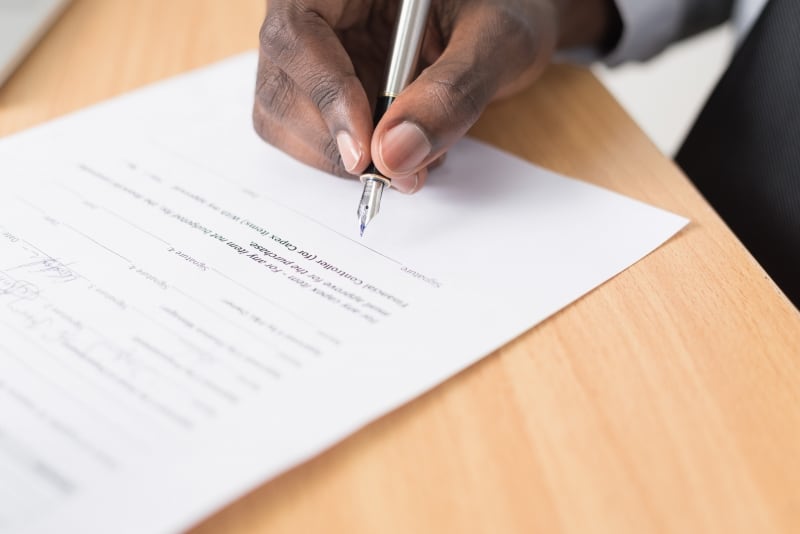Ten things I wish I had known before my first Small Claim.

- Hold a conference at court before the trial
Do not underestimate the importance of a conference with your witnesses before trial.
Small Claims are prepared on a tight budget and you will often find that your client’s witness statement is skeletal or does not fully capture their version of events. It is important to take time to go through the accident circumstances. This ensures that firstly everything in the witness statement is correct and also that you have a clear understanding of your client’s case.
Don’t forget that this is also likely to be your client’s first ever time in court. A pre-trial conference also gives you the opportunity to explain the procedure, answer your client’s questions and calm their nerves; often leading to a more relaxed witness who is able to give better evidence.
- Get to court early and find a conference room
Do not be surprised if you arrive at court and you are in a block list of Small Claims. Unfortunately, most courts have a very limited number of conference rooms. Although it is possible, you do not want to be trying to conduct a conference in a busy corridor. The only way to increase the likelihood of finding a conference room is to arrive at court at least 30 minutes before the hearing.
- Bring Google maps images/clearer photos
Small Claims are often prepared on a low budget and a common situation arises where the photographs or maps of the accident location in the bundle are unclear.
It is often useful to view the accident location and your client’s route on Google maps. If you think it would assist the court (and the witnesses, counsel, etc.), print out screen shots from Google Maps. Remember to take multiple copies for everyone at the hearing.
- Rules of evidence are more relaxed
Small claims hearings are intended to be flexible and may “adopt any method of proceeding at a hearing that it considers to be fair”. This means that the rules of evidence are more relaxed. You may find that, despite your objections, new evidence and documents are admitted on the day of trial. It is also worth noting that witness evidence does not have to be taken on oath.
- Be prepared to make an oral application for relief
It is too frequently the case that a relief from sanctions application becomes necessary on the day of the trial. Ideally, a formal N244 application (with supporting evidence) should be made ahead of the trail date. However, the reality is that this rarely happens.
The first step is to check the exact directions in the allocation order. Often, the directions will give the court discretion to refuse to consider a document that has been filed/served out of time. If this is the case, technically a relief from sanctions application is not necessary.
Even in situations where a relief from sanctions application is not strictly necessary, most District Judges will still expect submissions on why they should grant relief and will expect you to address them on the three-stage test set out in Denton v TH White [2014] EWCA Civ 906.
- Do the maths before you go into court
One thing that pupil barristers always worry about before their first ever hearing is costs.
Small Claims costs are simple and can usually be calculated and agreed with your opponent prior to the hearing. They comprise of the issue fee, legal representative costs (found in the bottom right hand corner of the claim form) and the hearing fee (found on the notice of hearing). There may also be an expert fee however this is limited to £750.
If you are missing a copy of the claim form or the notice of hearing, ask your opponent if they have a copy or request that the Judge checks the court file to ensure the figures are correct.
- Witness expenses
Before the hearing, make a note of your client’s witness expenses. The successful party is able to recover reasonable witness expenses which include:
(i) Expenses reasonably incurred in travelling to and from a hearing or staying away from home in order to attend a hearing; and
(ii) Loss of earnings or loss of leave due to attending a hearing (or staying away from home in order to attend a hearing) not exceeding £95 per day for each person.
The Judge and your opponent will most likely want to see evidence to support any loss of earnings claim (in the form of a wage slip or bank statement).
- Unreasonable behaviour
If it isn’t already bad enough when your claim is struck out or dismissed, your opponent will likely apply for unreasonable behaviour costs under CPR 27.14.
Keep in mind that conduct is not unreasonable just because it has led to an unsuccessful result, or because one party ought to have been more cautious. CPR 27.14(3) also specifically states that a party’s rejection of an offer in settlement will not of itself constitute unreasonable behaviour, although the court may take this into account.
If there is a reasonable explanation for the behaviour, then it can be suggested that there is no unreasonable conduct. Efforts should also be made to raise the bar for unreasonable behaviour and suggest that an error on its own does not constitute unreasonable conduct.
- Bring an extra copy of your client’s witness statement
It is unlikely that a witness bundle will be available at the Small Claim hearing. I have come across a few occasions where, during a hearing, a witness is called to give evidence but their representative does not have a printed unannotated copy of their witness statement.
Although your instructing solicitor will have most likely sent you an electronic copy of bundle, I would advise printing a spare copy of your client’s statement for use at the hearing.
10. Give your opponent any additional documents you wish to rely on
If you are instructed on a credit hire claim and wish to rely on case law, or you intend to rely on a specific section of the Highway Code, print out an additional copy for the Judge and your opponent.
Although this is not a necessity, it is a common courtesy to give copies of these documents to your opponent before the hearing. It will also ensure the hearing goes smoothly.
Jade Ferguson’s profile can be viewed here










